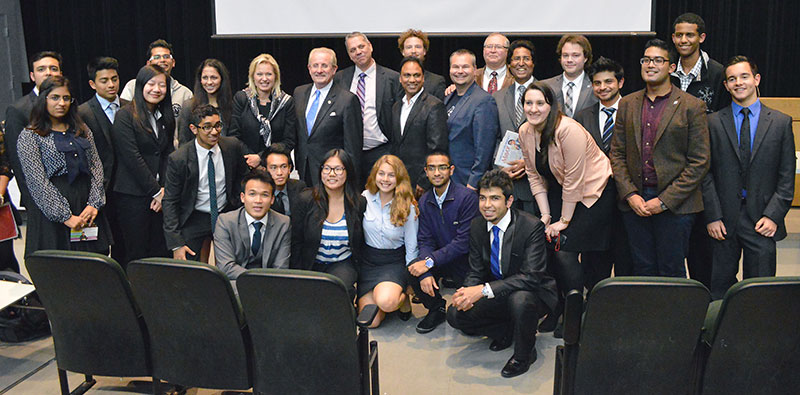
STORY & PHOTOS BY JEANYLYN LOPEZ
Nine mayoral candidates took the stage at the University of Toronto, Mississauga Campus on Oct. 1 to debate youth initiatives in the city.
Scott E.W. Chapman, Bonnie Crombie, Grant Isaac, Kevin Jackal Johnston, Masood Khan, Stephen King, Steve Mahoney, Derek Ramkissoon and Andrew Seitz spoke to an audience of about 250 people. The discussion included moderated questions, which candidates were given one minute to answer, as well as a chance for candidates to pose question their opponents.
How do you plan to combat youth unemployment so young citizens don’t have to go elsewhere to find work?
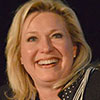 Bonnie Crombie: I’m afraid we might lose a generation of youth. I want to initiate the mayoral youth job challenge to create 1,000 jobs a year by incentivizing and encouraging the 59,000 businesses here and the 63 Fortune 500 companies to hire our youth.
Bonnie Crombie: I’m afraid we might lose a generation of youth. I want to initiate the mayoral youth job challenge to create 1,000 jobs a year by incentivizing and encouraging the 59,000 businesses here and the 63 Fortune 500 companies to hire our youth.
 Steve Mahoney: Create the Mississauga Futures plan, which will create 1,500 co-op placements within the first four years and I’ll challenge the private sector to match that for a total of 3,000. Anyone who wants to bid on a contract in the city of Mississauga must have an apprenticeship program where they’re teaching young people new skills and giving them new opportunities for jobs.
Steve Mahoney: Create the Mississauga Futures plan, which will create 1,500 co-op placements within the first four years and I’ll challenge the private sector to match that for a total of 3,000. Anyone who wants to bid on a contract in the city of Mississauga must have an apprenticeship program where they’re teaching young people new skills and giving them new opportunities for jobs.
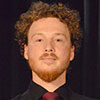 Andrew Seitz: Cooperative enterprises are the way to go. You’ll have a vote to how the business is run. It generally creates higher wages and better working conditions, and it keeps money within the community.
Andrew Seitz: Cooperative enterprises are the way to go. You’ll have a vote to how the business is run. It generally creates higher wages and better working conditions, and it keeps money within the community.
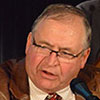 Grant Isaac: A lot of clients have had problems getting money from banks to expand or start businesses, and if they can’t get money they can’t create jobs. I will use moral suasion on the government and specifically the banks. If they want to do business in Mississauga they have to make credit more available to those who want to start new businesses and create new jobs.
Grant Isaac: A lot of clients have had problems getting money from banks to expand or start businesses, and if they can’t get money they can’t create jobs. I will use moral suasion on the government and specifically the banks. If they want to do business in Mississauga they have to make credit more available to those who want to start new businesses and create new jobs.
What will you do to reduce congestion and make commuting throughout Mississauga more affordable for youth?
 AS: What I propose is to reallocate the funding for the LRT to extend Kipling station from Square One. I propose we have 24-hour transit tickets, and we need a 24-hour transit system.
AS: What I propose is to reallocate the funding for the LRT to extend Kipling station from Square One. I propose we have 24-hour transit tickets, and we need a 24-hour transit system.
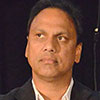 Derek Ramkissoon: I want to help youth and young adults by taking some of the pressure off them. I don’t want them pay $3.25 for buses but give them a break, but let fare be $1 to get back and forth.
Derek Ramkissoon: I want to help youth and young adults by taking some of the pressure off them. I don’t want them pay $3.25 for buses but give them a break, but let fare be $1 to get back and forth.
 SM: If more people use transit it will be more efficient, effective and affordable. If we want to give a break to all students and seniors, we need to increase the ridership of the whole transit system. The only way to do that is to make it more efficient, bigger and better. I propose HOV lanes to start moving cars quickly and the Bus Rapid Transit will open soon.
SM: If more people use transit it will be more efficient, effective and affordable. If we want to give a break to all students and seniors, we need to increase the ridership of the whole transit system. The only way to do that is to make it more efficient, bigger and better. I propose HOV lanes to start moving cars quickly and the Bus Rapid Transit will open soon.
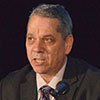 Stephen King: I propose to have the LRT on Dundas, connecting it to Kipling Station, creating an east-west connection with Toronto. That will spur development on Dundas creating jobs for everyone in the city. I would also like shuttle buses connecting to the Dundas LRT.
Stephen King: I propose to have the LRT on Dundas, connecting it to Kipling Station, creating an east-west connection with Toronto. That will spur development on Dundas creating jobs for everyone in the city. I would also like shuttle buses connecting to the Dundas LRT.
 BC: In council I’ve voted in favour of extending the U-Pass to part time students and community college students. We also need to enhance our bus time schedule they’re unrealistic. I have a plan called Mississauga Moves, which is a regionally integrated transit system, which includes the LRT as the north-south spine, an all-way two-way frequent and electrified GO, and the BRT will be completed. I don’t agree with HOV lanes on city streets. I think it’s going to cause congestion and chaos.
BC: In council I’ve voted in favour of extending the U-Pass to part time students and community college students. We also need to enhance our bus time schedule they’re unrealistic. I have a plan called Mississauga Moves, which is a regionally integrated transit system, which includes the LRT as the north-south spine, an all-way two-way frequent and electrified GO, and the BRT will be completed. I don’t agree with HOV lanes on city streets. I think it’s going to cause congestion and chaos.
What is your plan to provide more support and shelter for homeless youth in the city?
 BC: We need to build more variety of housing that’s affordable for seniors, students and youth. I would encourage developers to put a portion of their developments aside for affordable housing.
BC: We need to build more variety of housing that’s affordable for seniors, students and youth. I would encourage developers to put a portion of their developments aside for affordable housing.
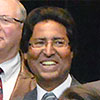 Masood Khan: I think there’s a problem with the system of affordable housing. I’ve noticed that not everyone staying in affordable houses need to be there. We have to look at the criteria for those who need it. We should also ask developers to donate some land or build affordable housing within their subdivision.
Masood Khan: I think there’s a problem with the system of affordable housing. I’ve noticed that not everyone staying in affordable houses need to be there. We have to look at the criteria for those who need it. We should also ask developers to donate some land or build affordable housing within their subdivision.
 SK: In order to address affordable housing, we don’t necessarily have to build it. If we have $100 million to build a building, we can use that money to give subsidies to people so they can live in homes they’re already accustomed to.
SK: In order to address affordable housing, we don’t necessarily have to build it. If we have $100 million to build a building, we can use that money to give subsidies to people so they can live in homes they’re already accustomed to.
 SM: I interpret the question a bit differently. It’s about youth homelessness. If they’re on the street I suspect there’s more going on than just not having an affordable house. We have street workers in the Region Peel to talk to these young people, find out what their issues are in order to develop programs to help them. Bringing them into an affordable house is not going to solve their problem if they have other problems like substance abuse, physical abuse or other problems at home.
SM: I interpret the question a bit differently. It’s about youth homelessness. If they’re on the street I suspect there’s more going on than just not having an affordable house. We have street workers in the Region Peel to talk to these young people, find out what their issues are in order to develop programs to help them. Bringing them into an affordable house is not going to solve their problem if they have other problems like substance abuse, physical abuse or other problems at home.
 GS: If we have people on the street, we have arenas that are heated all over Mississauga. We can bring them in and give them a sleeping bag so they have a place to sleep. There’s no need for people to be out on the street to be homeless.
GS: If we have people on the street, we have arenas that are heated all over Mississauga. We can bring them in and give them a sleeping bag so they have a place to sleep. There’s no need for people to be out on the street to be homeless.
What is your plan for creating youth friendly spaces within Mississauga?
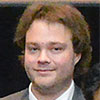 Scott E.W. Chapman: I feel we already have countless youth friendly spaces. We have public parks, public swimming pools, public tennis courts and running tracks.
Scott E.W. Chapman: I feel we already have countless youth friendly spaces. We have public parks, public swimming pools, public tennis courts and running tracks.
 BC: I’m on a mission for a city that’s liveable and walkable, that features a waterfront with creative places that’s accessible. We’ll have a vibrant downtown that’s a creative space to attract people.
BC: I’m on a mission for a city that’s liveable and walkable, that features a waterfront with creative places that’s accessible. We’ll have a vibrant downtown that’s a creative space to attract people.
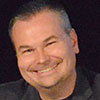 Kevin Jackal Johnston: I want to redevelop the waterfront to have Canada’s largest skate park. Make sure we have a centre where youth can go to skateboard and rollerblade and they can spend their days there. I would like to surround the area with bars, clubs and cafes and run buses to it 24 hours a day.
Kevin Jackal Johnston: I want to redevelop the waterfront to have Canada’s largest skate park. Make sure we have a centre where youth can go to skateboard and rollerblade and they can spend their days there. I would like to surround the area with bars, clubs and cafes and run buses to it 24 hours a day.
 SK: I’m going to ask the youth what they want and ask them what their ideas are to come up with a shared vision and come up with it together.
SK: I’m going to ask the youth what they want and ask them what their ideas are to come up with a shared vision and come up with it together.
 SM: I would bring a concept of a downtown with clubs and pubs. I’ll encourage the development of a waterfront where people can enjoy the lake, take long walks and cycle.
SM: I would bring a concept of a downtown with clubs and pubs. I’ll encourage the development of a waterfront where people can enjoy the lake, take long walks and cycle.